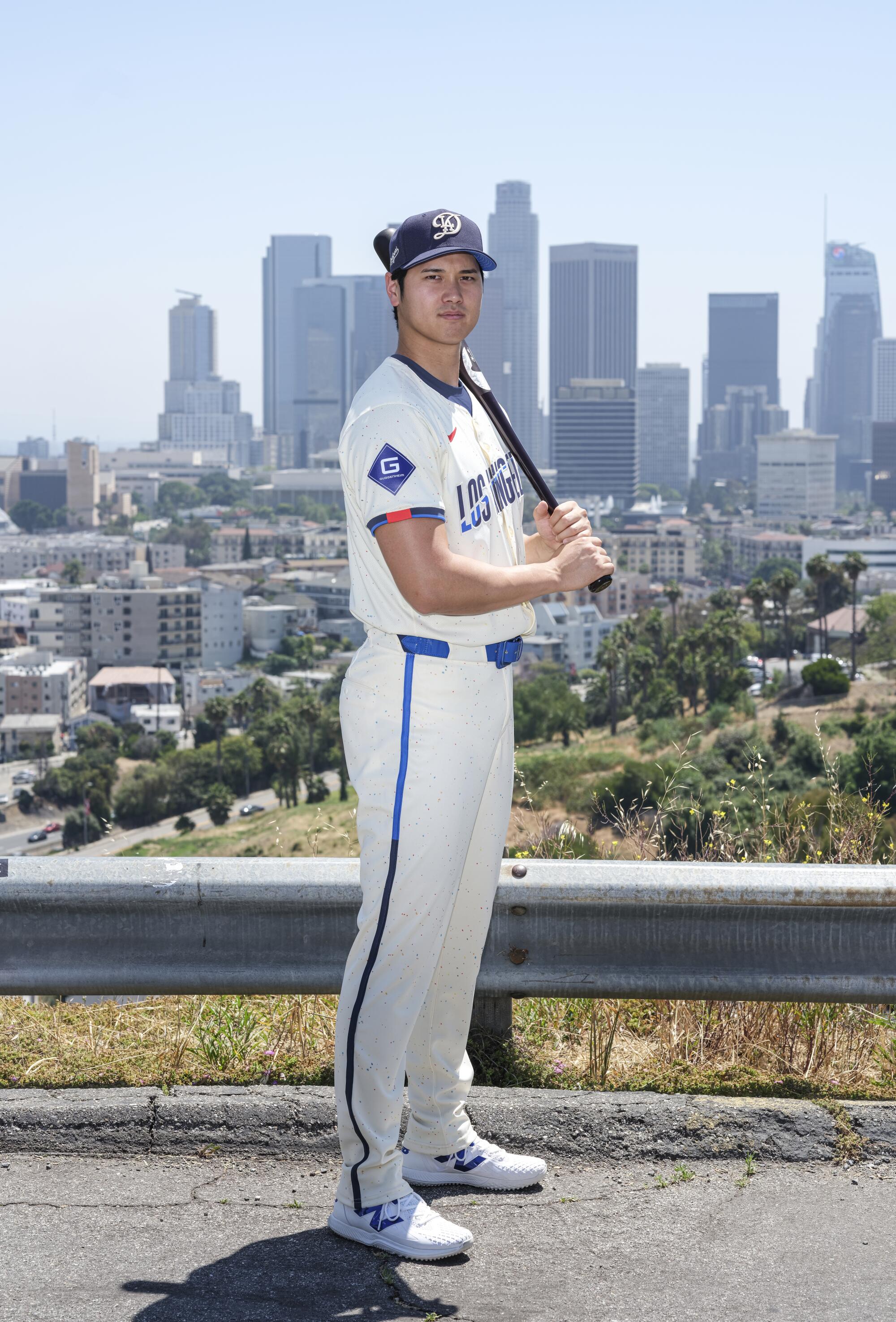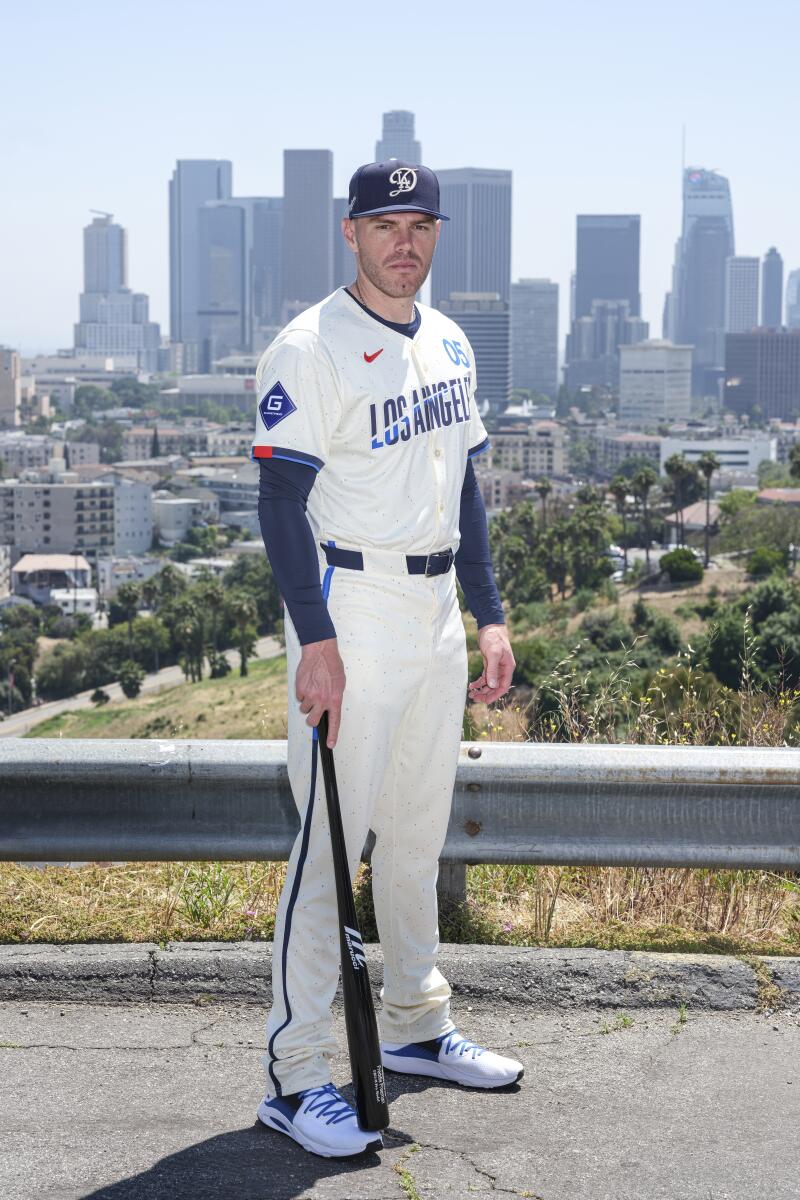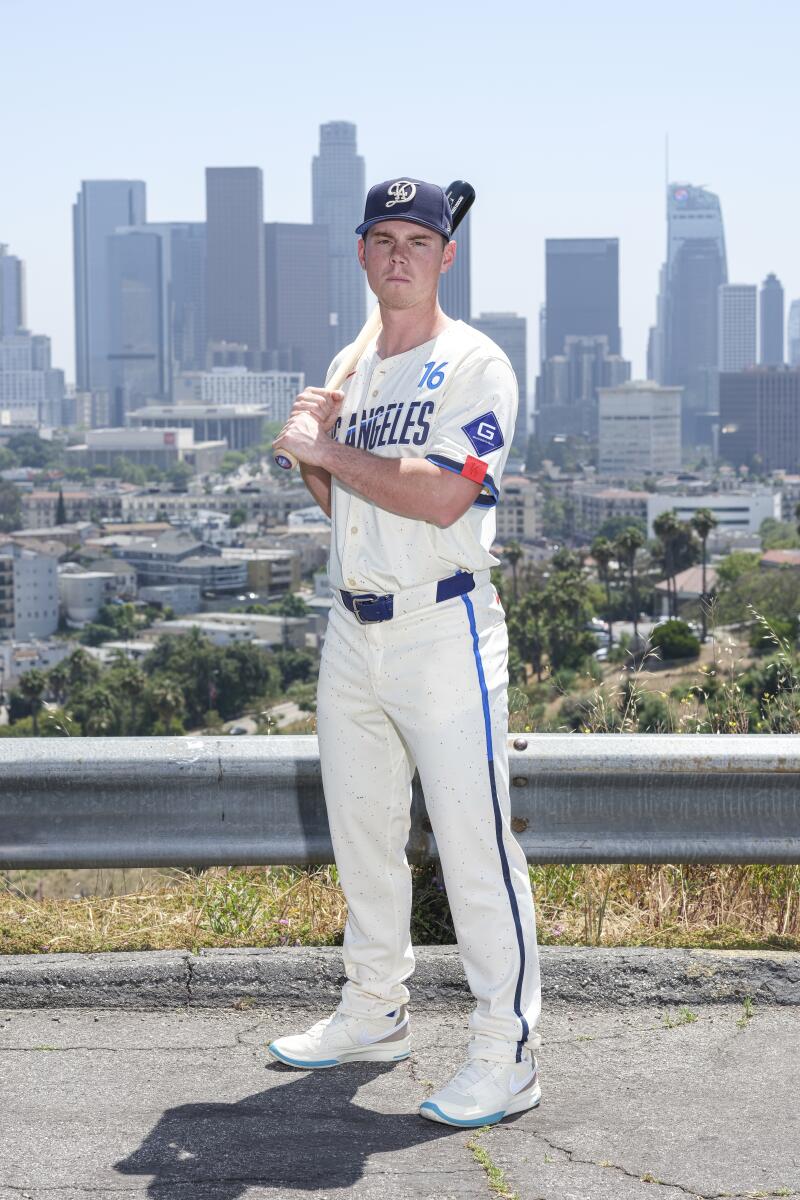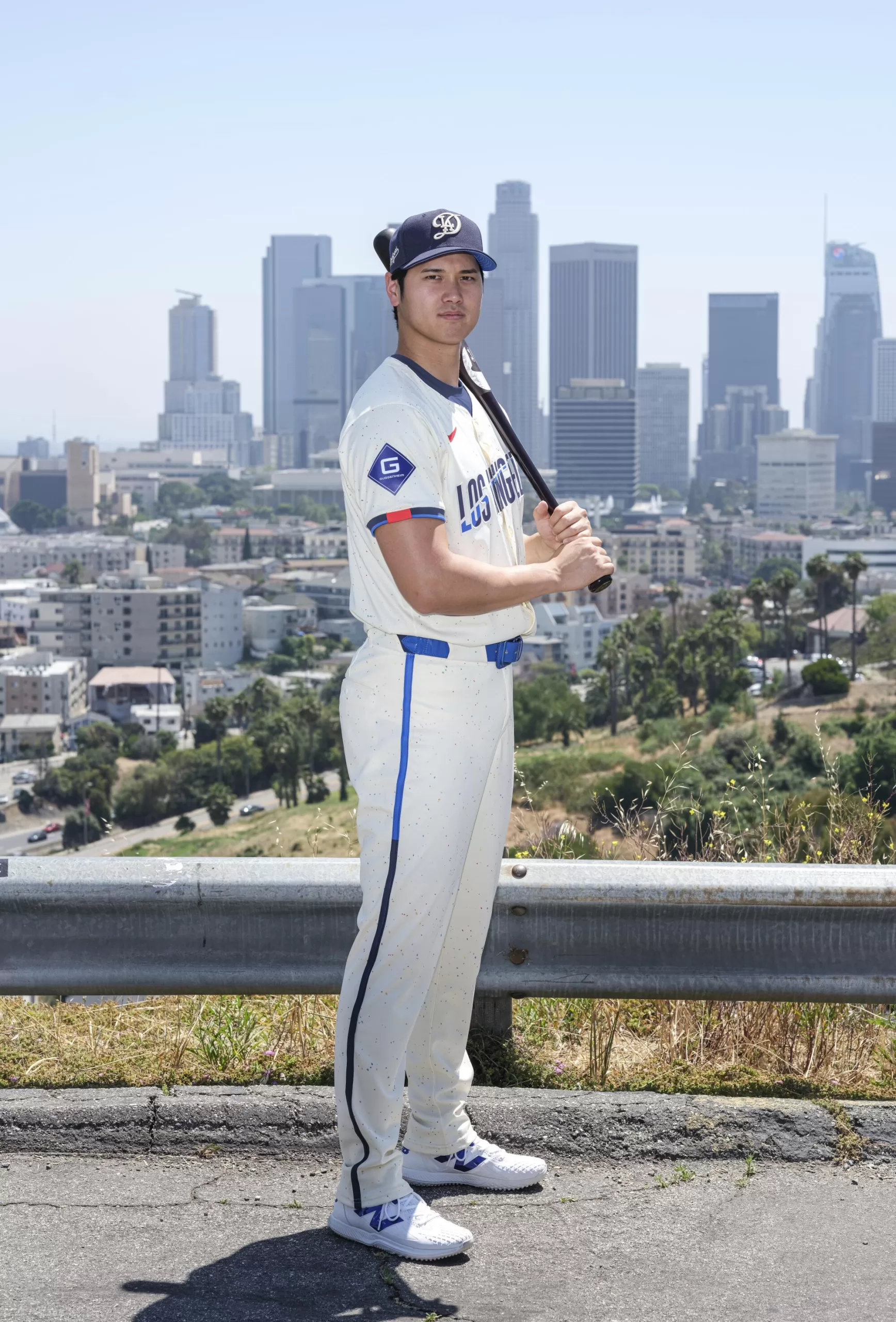The Dodgers dumped the “Los Dodgers” caps for more traditional ones, then discarded the all-blue look in favor of a blue jersey and white pants. The splashes intended to evoke street art were practically invisible, with black on dark blue.
The “Los Dodgers” script across the jersey should have read “Los Doyers” — a phrase the franchise has trademarked — but staying true to the brand meant an unfortunate and unsatisfactory Spanglish compromise.

(Jon SooHoo / Los Angeles Dodgers)
“We were really sensitive to the fact that we didn’t really knock it out of the park,” said Allister Annear, the Dodgers’ vice president of merchandise.
City Connect 2.0 is here. It succeeds where the previous version failed, for a well-intentioned but nonetheless fatal flaw.
A City Connect uniform should be a radical and raucous celebration. You cannot balance that with an unyielding respect for tradition. It is one or the other, or it is a muddled middle ground that satisfies no one. The New York Yankees, who do not include player names on their jerseys, have not participated in the City Connect program.
You might gasp when you see the Dodgers’ new City Connect uniform, decorated in dots of many colors, lines flying upward all over the place, no script across the front of the jersey, a player’s name below two-tone numbers on the back. But that is the point: Does the world need another unimaginative alternate jersey?
There is a story behind each City Connect outfit. To their credit, the Dodgers had no interest in connecting their team to Hollywood — how the world sees Los Angeles — by spelling out “Dodgers” or player names in the style of the Hollywood sign.
“That was the first thing we all said we wanted to avoid,” Annear said. “That’s been rammed into the ground by everybody and their mother.” (Including the Dodgers, who sell a Shohei Ohtani T-shirt in the style of the Hollywood sign.)
The Dodgers and Nike bounced around the idea of “moon shots.” That would not work, because it had a tie to tradition: the “Moon shots” hit by slugger Wally Moon over the left-field screen when the Dodgers played at the Coliseum.
The concepts floated to “taking your shot” and “shooting stars,” and the design started to take shape.
On the front of the jersey, an upward line through the name “Los Angeles” represents a shooting star. What looks like confetti — or funfetti — sprayed all over the jersey represents stars, in the colors of the distinctive seating palette at Dodger Stadium.
“The whole idea,” Annear said, “is to be a galaxy of stars.”
There is an “IFTDB” tag, a reference to Vin Scully’s call of “It’s time for Dodger baseball,” and there are two other shooting stars: one flying out of the A on an interlocking “LA” sleeve logo, and one ascending from a cap logo that is a mash-up of a traditional interlocking “LA” and a script “D.” The not-quite-cream color of the jersey and pants, Annear, said, was inspired by the surface of the moon.


Dodgers first baseman Freddie Freeman, left, and catcher Will Smith pose in the team’s new City Connect uniforms. (Jon SooHoo / Los Angeles Dodgers)
In one sense, the “Galaxy of Stars” tagline is self-evident: With Mookie Betts, Ohtani and Freddie Freeman, the Dodgers top their lineup with three winners of the most valuable player award. But this is about representing the city, not just the audience at Dodger Stadium.
“You come to Los Angeles to take your shot,” Annear said, “whether it’s Ohtani coming to Los Angeles this year, which is very big in all of baseball, or you’re coming to Los Angeles to be a TV, film or music star.
“It’s a place where we feel there is open-mindedness, so we wanted to reflect that. If you’re a baseball player, your dream is baseball. If you’re an engineer, maybe it’s SpaceX, going to the moon or developing some new aircraft.”
This is where the connection is made between team and city, beyond the evergreen adage of L.A. as a place where dreamers come to reinvent themselves and shoot for the stars.
“Hollywood is only a component of how we see Los Angeles,” Annear said. “It is not the thing.”
Shooting stars indeed: Los Angeles County boasts a vibrant and vital history in the aviation and aerospace industries, from Lockheed and McDonnell Douglas to SpaceX and NASA’s Jet Propulsion Laboratory. Those industries — and the homes needed for their workers — jump-started the development of the San Fernando Valley.
In 1910 — only seven years after the Wright Brothers and their first flight — Los Angeles staged America’s first international air show. In 1947, Chuck Yeager broke the sound barrier just north of Los Angeles County, at Edwards Air Force Base, where space shuttles landed from 1981 through 2009.
GPS technology blossomed from defense research in El Segundo; the internet evolved from defense research at UCLA.
Truth be told, the most glamorous way to blend the Dodgers, Hollywood and space dreamers would have been to outfit the team in the sequined uniform Elton “Rocket Man” John wore in his legendary concert at Dodger Stadium in 1975. Not practical, perhaps. Sigh.
These City Connects are practical and fun too, with a bit of history for us locals. Like Elton John himself, they rock.
